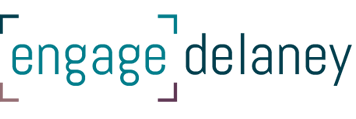Habits and the Engagement Practitioner
Habits and the Engagement Practitioner
By Jessica Delaney, Principal, Engagement + Communications
I just started reading James Clear’s Atomic Habits. Habits fascinate me because I feel like I am a sponge – I can easily adopt new habits good or bad. I can get in the habit of doing yoga or in the habit of drinking half a bottle of champagne on the patio after the kids go to bed. Without even knowing it, I can create habits and if I am being honest, the unhealthy ones are so, so much easier to adopt. In 2018, my word for the year was intentional, and so intention and how we build habits speaks to me.
Clear quickly articulates three key points about habits.
- Forget about goals, says Clear, instead focus on habits and the systems required to support those habits. Routinize your habits to make them last.
- Positive and negative compounding; this suggests that while one bad decision isn’t going to be detrimental, over time it will negatively compound. In my case, skipping yoga to drink champagne for a night or two isn’t a big deal, but over a year it looks pretty nasty.
- We underestimate the impact of small habits over time and assume that massive change requires massive action. We are biased towards big action because we want big, immediate results, when the reality is that it truly is actions we take one day at a time that change our lives.
So let’s apply these points to engagement habits. We can build good ones or bad ones, both as individual practitioners and organizations.
- Let’s say you have a goal to build better, more trust-based working relationships with a particular stakeholder community. Break that down into a positive habit. Maybe it looks like reaching out when you/your organization doesn’t need something from them. Maybe it means reaching out to check-in, drop a note of congratulations, see if they need/want more information. The routine looks like booking time in your calendar once a month to drop by their office, send an email, or make a call to connect. Make it a routine. Call people and groups who matter to your organization regularly, as an example.
- Take a look at where you or your organization consistently fall down in engagement. Is there little notice of your engagement event? Is your public information confusing? Do you regularly fail at closing the loop? Ok – now take that and ask: “what would it take to be better and how can I start today?” If you fail to close the loop on your engagements, why don’t you start adding it to the project timeline, providing some time and budget to make it happen? Develop a template? Over time, your organization will come to routinize reporting back and this will increase your social capital and transparency.
- Engagement is a human experience. It is easy to sometimes think: “this relationship will never get better”, “no one will ever come to our meetings”, or “we aren’t built for engagement as an organization”. When we think these things, we typically think the action required to change these realities is so massive that it is bigger than us. But it’s not… it’s just simply hard. By that I mean if you want to build a better relationship between your organization and a stakeholder or specific community, it requires baby steps taken by you, a human! Relationships are a human experience and so is engagement. Ask: “how can I work to re-build trust between you and my organization?” And then start to do it… day by day, week by week…. Change can appear glacial, until it’s not. So do not underestimate your influence over time.
If you geek out on habits, and want to build ones that will help you spend your time with intention… read the book….oh and make a habit of reading too!




